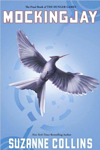
Search
Categories
Famous Authors
Top Selling Books

Book Home ![]() Books Information
Books Information ![]() The Man in the High Castle
The Man in the High Castle
The Man in the High Castle
The Man in the High Castle is a 1962 alternative history novel by science fiction writer Philip K. Dick. The novel is set in the United States, 15 years after the Axis Powers defeated the Allies in World War II and the U.S. submitted to German and Japanese military occupation.
While not the first piece of alternative history fiction, the novel defined that type of story as a genre of literature. It won the prestigious Hugo Award and helped make Dick well-known in science fiction circles. It is one of Dick's most tightly-structured and character-focused novels and one which deals the least with standard science fiction themes, such as technological innovation and interplanetary travel.
The Grasshopper Lies Heavy
Several characters in The Man in the High Castle read a popular, although
banned, novel called The Grasshopper Lies Heavy by Hawthorne Abdensen
in which the Axis powers lost the war. Although closer to actual history,
the novel portrays a third scenario.
In The Grasshopper Lies Heavy, Roosevelt survives the assassination attempt but does not run for reelection in 1940. The next president, Rexford Tugwell (who in our reality never ran for the presidency), mitigates the bombing of Pearl Harbor by sailing the U.S.'s Pacific fleet, so the U.S. enters the war with more naval power.
In the novel the British contribution to victory is greater than in the historical scenario and the Russian and American lower. The turning points of the war are a British victory over Nazi troops under General Erwin Rommel in Africa, a British advance through the Caucasus and, in coordination with the remnants of the Russian army, a British victory at Stalingrad. As in the historical scenario, Italy turns against the Axis Powers. British tanks storm Berlin at the end of the war.
After the war, Britain, still led by Churchill, doesn't lose its empire and the U.S. exports mostly to China, under the rule of Chiang Kai-shek. The British Empire remains racist while the U.S. solves its race issues by the 1950s causing tension between the two superpowers.
Eventually, the U.S. challenges the traditional British role as the world's most influential nation. However, the British ultimately overcome the U.S. to become the world's supreme power.
The book's author, Hawthorne Abendsen, is rumored to live in a highly guarded fortress; his nickname is "the Man in the High Castle," from which the novel itself is named.
The Use of the I Ching
Dick claims that he wrote The Man in the High Castle, using the ancient
Chinese philosophical text the I Ching (or Book of Changes) to decide
on plot development. He even blamed the I Ching for plot details that
he was unhappy with in one interview.
The I Ching is featured throughout The Man in the High Castle. It spread through the Pacific States after the Japanese began their occupation. Several characters, both Japanese and American, consult it for important decisions. Hawthorne, like Dick, used the I Ching to write The Grasshopper Lies Heavy.
Themes
The most prominent theme in The Man in the High Castle is the question
of the penetration of true reality into a false reality. This can
be seen in several aspects of the novel.
Robert Childan discovers that many of his antiques are
fakes and becomes paranoid that his entire stock consists of counterfeits.
Several characters are spies, traveling under false names and pretenses.
Although not describing the historical scenario, The Grasshopper Lies
Heavy, the book-within-a-book, portrays actual history more accurately
than The Man in the High Castle itself.
The Grasshopper Lies Heavy' is essentially the alternate-history counterpart
of The Man in the High Castle in that, to the characters inhabiting
the fictonal world, the world of The Grasshopper Lies Heavy is the
fiction. This implies the penetration of two false realities suggesting
that even the idea of two realities, true and false, is incorrect
and that there are multiple realities.
The Man in the High Castle of the book's title actually lives in a
normal house.
At the novel's end, it is implied that a few characters, through consultation
with the I Ching, discover that their world is fictional.
One character seems to briefly become cognizant of the real world.
With this theme, Dick suggests the questions, who or what is the agent
causing this inter-penetration of realities? And why does that agent
desire that this reality be known as an artifice? This theme is addressed
further in several subsequent Dick novels, including Ubik, Flow My
Tears, The Policeman Said, and Valis.
The Man in the High Castle also deals with themes of justice and injustice (through Frink's fleeing from Nazi persecution), gender and power (through Juliana's relationship with Joe), shame and identity (through Childan's new confidence in American culture), and the effects of fascism on culture (throughout the novel, especially sections in dealing with the lack of value of life in the wake of Nazi dominance of the world).